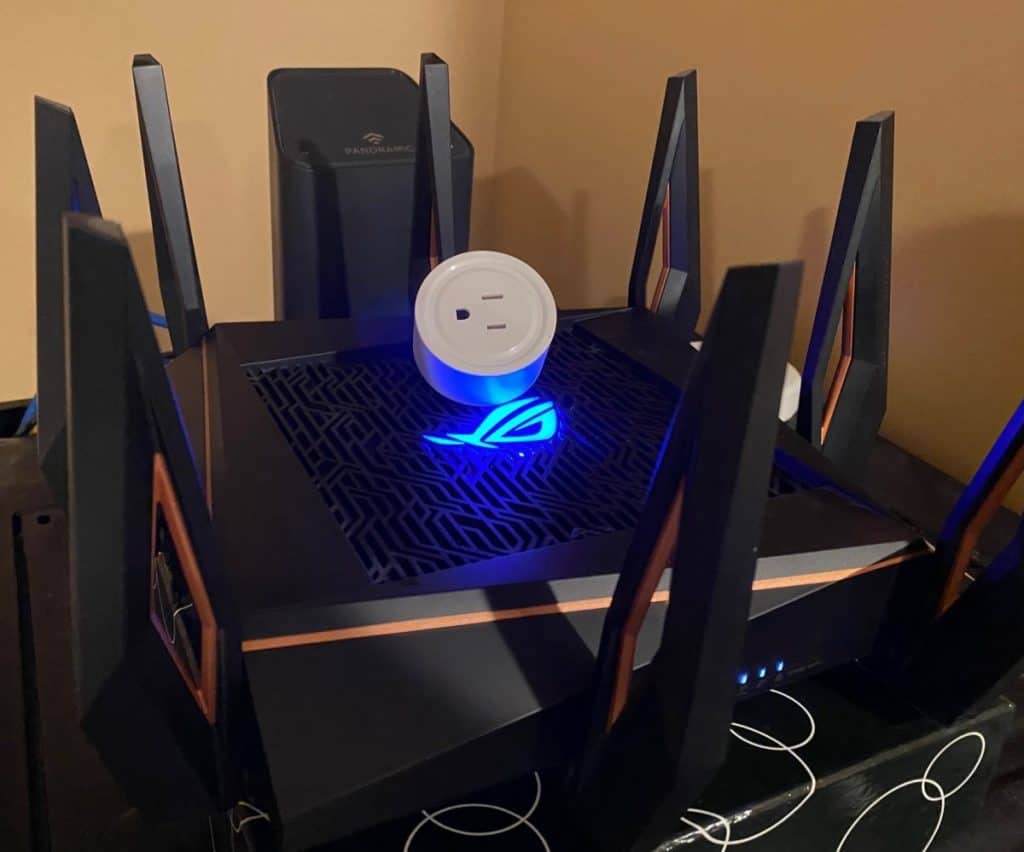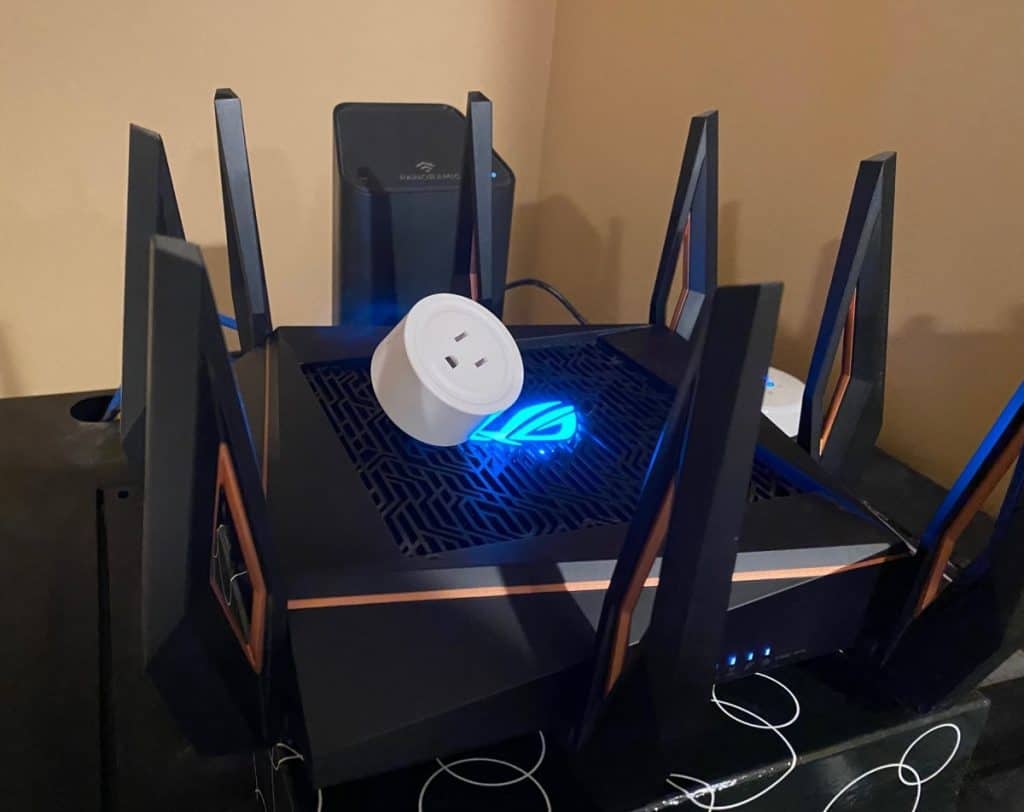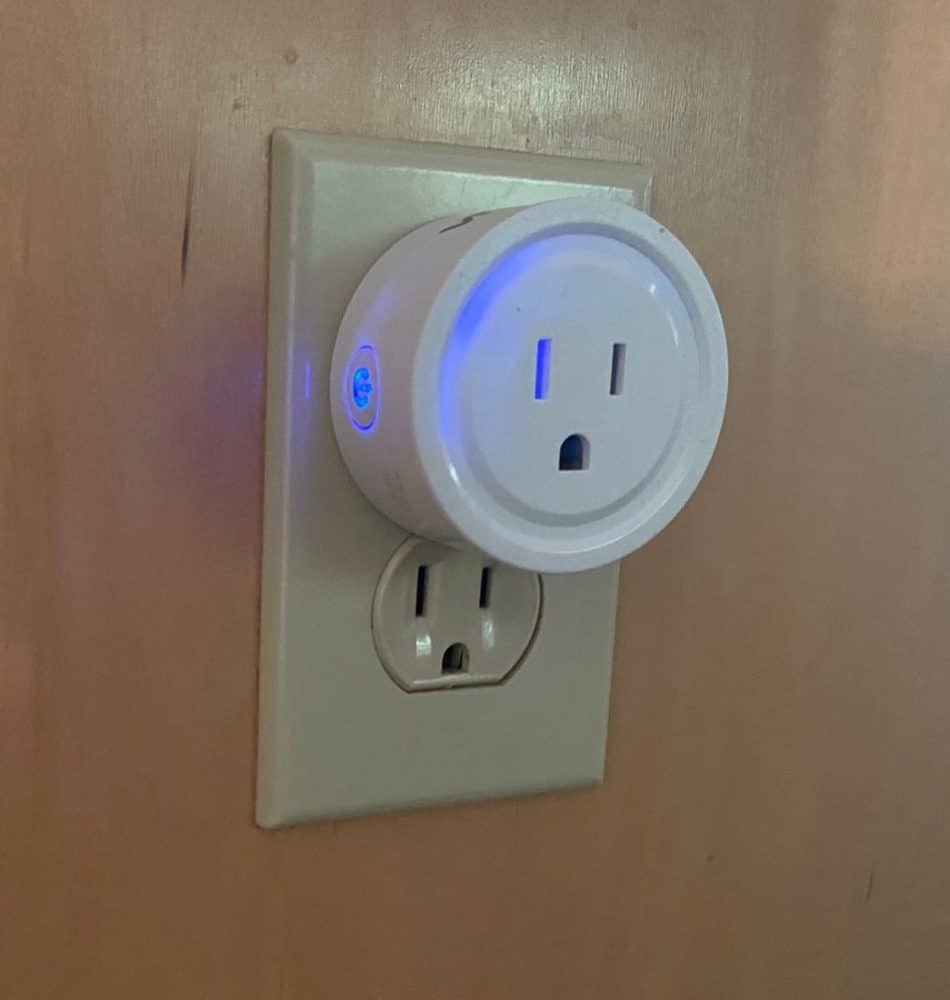Smart plugs let you manage your appliances, measure electrical usage, and operate them through your smart home system. You have a few smart plugs, but you are starting to wonder if they are causing delays in your WiFi network. Do smart plugs use too much WiFi?
Smart plugs do not use too much WiFi. While smart plugs use WiFi to connect to the internet and your home network, their bandwidth usage is minimal. Unless your plan has a very low data cap, you are unlikely to run into problems with smart plugs on your WiFi network.
If you worry about your smart plugs using up too much WiFi, worry no more. This article will explain how your smart plug uses WiFi and point out some other smart devices that might be gobbling data. Read on to find out more.

How Does a Smart Plug Use WiFi?
A smart plug uses WiFi to interface with your router and link to the internet. From there, it connects to the same central hub as your smartphone or home assistant. When you issue commands, the main hub transmits them to your smart plug.
So you just told Alexa to turn on your smart plug? Here’s what happens:
Alexa transmits your voice command to the cloud, where it is interpreted. The cloud sees that your smart plug is connected to Alexa’s network and sends the “On” command through your network to your smart plug’s WiFi receiver. The smart plug processes that command and begins sending current to the attached appliance.
This may seem a roundabout way of doing things, but it lets you control your smart plug while you are away from home. It also allows manufacturers to download necessary firmware updates and offload much of the technical work of smart home maintenance to trained professionals skilled in coding and network engineering.
Do Smart Plugs Use a Lot of WiFi?
Smart plugs do not use a lot of WiFi. Even though these connections connect to upload information for energy use statistics and download routines, they only involve very little data. If your smart plug uses a lot of WiFi, that might be because it has been infected with malware.
In an average month, a smart plug uses around 50MB of data. That is less data than you would use listening to 30 minutes of Apple Music. While some smart home devices can be bandwidth hogs – smart video cameras are notorious for this – your smart plug is a data-sipper.
There may be situations where 50 MB of data makes a difference. Some satellite data plans begin throttling your download speed after using as little as 10GB of data in a month.
When you’re relying on that sort of connection for your internet service provider, every little bit counts, and you would probably do better with a mesh network setup like Zigbee or Z-Wave for your smart home system.

Why Does My Smart Plug Suddenly Use So Much WiFi?
Your smart plug may suddenly use so much wifi due to a malware infestation. The rise in smart homes has inspired many hacker attacks on the Internet of Things (IoT), and your smart plug has probably been caught up in a botnet.
In 2016 several websites were knocked offline by the Mirai botnet. At the height of the attack, over 100,000 smart devices launched a flood of around 1.2 terabits per second — the equivalent of 12,000 4k/60 fps movies streaming simultaneously to the same connection.
Many botnet operators use hijacked nodes to mine bitcoin and other cryptocurrencies. If your smart plug suddenly makes many connections to an outside source, it could be drawing information from a blockchain.
If you have a data-hungry smart plug, your best bet is to replace it with a new one. While cheap generic smart plugs are widely available on Amazon or elsewhere, you may have better luck going with a name-brand plug made by a company with customer support and a security team.
If your smart plugs are not using excess data, here is a good way to keep them safe: change the username and passwords from the factory default settings. Many people click the boxes when adding devices to their smart homes. But if you do that, anybody who knows the factory settings can gain access to your smart plug.
Do Smart Plugs Need WiFi?
Smart plugs’ many functions that make them “smart” need WiFi and the internet. While they will still pass electricity to the appliance, you will not be able to control your smart plug with an app or home hub unless you have a WiFi connection.
If your WiFi goes down when your Alexa routine has your smart plug turned on, your appliance will remain powered.
But if the WiFi is still down when Alexa would normally turn that appliance off, the smart plug will not receive the command, and the device will stay on. Nor will you be able to turn the smart plug on or off with your app.
Without WiFi, most smart plugs become expensive outlet extenders.

What Smart Plugs Work Without WiFi?
Smart plugs connected to a Zigbee or Z-Wave hub do not use WiFi. Instead, they rely on low-powered mesh networks to receive routines and commands from the smart hub.
Smart homes run on mesh networks offer some advantages over WiFi setups. Because each smart device serves as a network node, your connection becomes stronger with each added device. The low-power radio networks are also less prone to interference than WiFi.
Unfortunately, Zigbee and Z-Wave smart homes require a dedicated hub. These systems are also less user-friendly and have a steeper learning curve than WiFi connections. But if you have many smart devices or limited internet data, a mesh network smart home may be a better choice for you.
Conclusion
Smart plugs are an excellent first step toward building a smart home. And while some smart devices can suck up a lot of data bandwidth, smart plugs should only add a modest load to your WiFi connection.

